Meet the Trump Cabinet
StartFew presidential transitions have been as fraught with uncertainty as the one associated with the incoming Trump Administration. While candidate Donald Trump pledged to repeal the Affordable Care Act, deport millions of undocumented immigrants, build a wall across the Southwest border with Mexico, renegotiate trade deals and redefine international partnerships, it’s not at all clear what President Trump may actually do once he’s in office. To understand how the man who promised to “fire stupid people” and shake up Washington might actually govern, its useful to consider the men and women he has tapped for his Cabinet. While the Senate still must confirm Trump’s picks, they offer insight into how he may manage the federal bureaucracy.
Contents
- State: Rex Tillerson
- Defense: James Mattis
- Central Intelligence Agency: Mike Pompeo
- Justice: Jeff Sessions
- Treasury: Steven Mnuchin
- Homeland Security: John Kelly
- Commerce: Wilbur Ross
- Transportation: Elaine Chao
- Health and Human Services: Tom Price
- Labor: Andy Puzder
- Housing and Urban Development: Ben Carson
- Education: Betsy DeVos
- Environmental Protection Agency: Scott Pruitt
- Energy: Rick Perry
- Interior: Ryan Zinke
- Small Business Administration: Linda McMahon
1/16
State: Rex Tillerson
Rex Tillerson, Donald Trump's choice to become the nation's top diplomat, is something of a Rorschach test for how people view the incoming Trump administration: An unconventional, bold choice for a government weighed down by conventional, stale thinking; or a dangerous gamble at a risky time. In the eyes of his supporters, the Exxon Mobile chairman and CEO is among the most accomplished, well-connected business leaders and deal makers in the world, but to critics, he is alarmingly close to Russian President Vladimir Putin and a dubious choice to uphold the tenets of American democracy abroad.
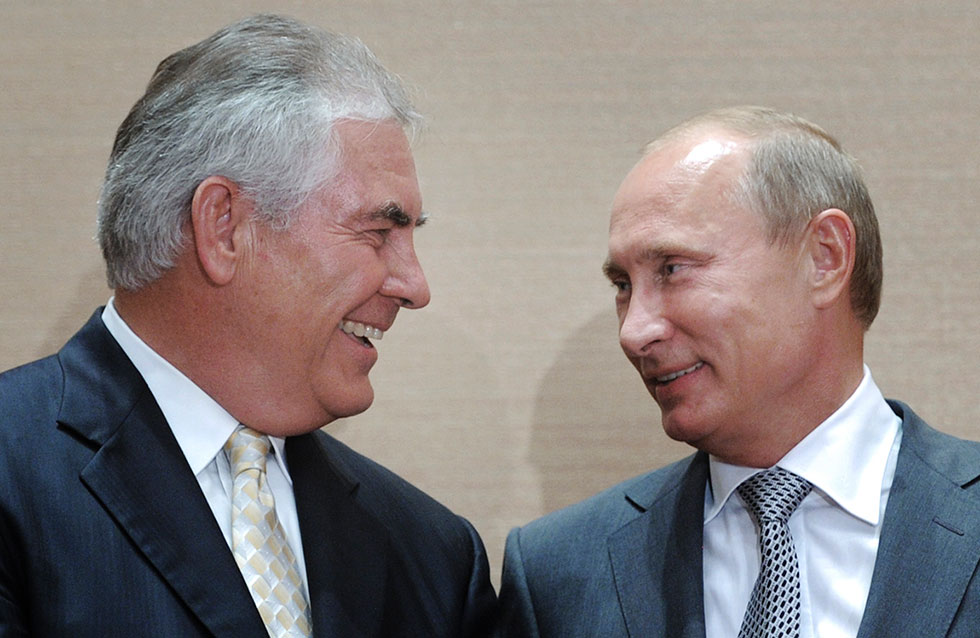
Vladimir Putin and Rex Tillerson during a signing ceremony in Sochi, Russia in 2011. (AP photo/RIA Novosti, Alexei Druzhinin, pool) As the Wall Street Journal reported:
In many ways, Mr. Tillerson’s record since becoming chief executive in 2006 makes him the international energy equivalent of President-elect Donald Trump’s claim to fame in real estate: a shrewd, opportunistic businessman who amassed daring investments and valuable assets around the world.
The New York Times predicted bruising confirmation hearings for Tillerson over Exxon Mobil's operations: "The company has billions of dollars in oil contracts that can go forward only if the United States lifts sanctions against Russia, and Mr. Tillerson’s stake in Russia’s energy industry could create a very blurry line between his interests as an oilman and his role as America’s leading diplomat.
"Mr. Tillerson has been publicly skeptical about the sanctions, which have halted some of Exxon Mobil’s biggest projects in Russia, including an agreement with the state oil company to explore and pump in Siberia that could be worth tens of billions of dollars," the paper noted.
Said Rep. Nita Lowey, D-N.Y., "It is disturbing that, coming on the heels of bombshell reports about Russian meddling in our election, President-elect Trump has chosen as our top diplomat an individual with close business ties to the top levels of the Russian government."
2/16
Defense: James Mattis
Retired Marine Corps Gen. James Mattis is that rare official with a reputation for both thoughtfulness and bluntness. The career military officer led a Marine division during the 2003 invasion of Iraq and most recently led U.S. Central Command before he retired in 2013 over concerns about the Obama administration’s Middle East policy, particularly with regard to Iran. As Trump recently described him, Mattis is “the closest thing we have to Gen. George Patton of our time.” Mattis is widely respected on Capitol Hill and beloved by many of the troops he led in battle.
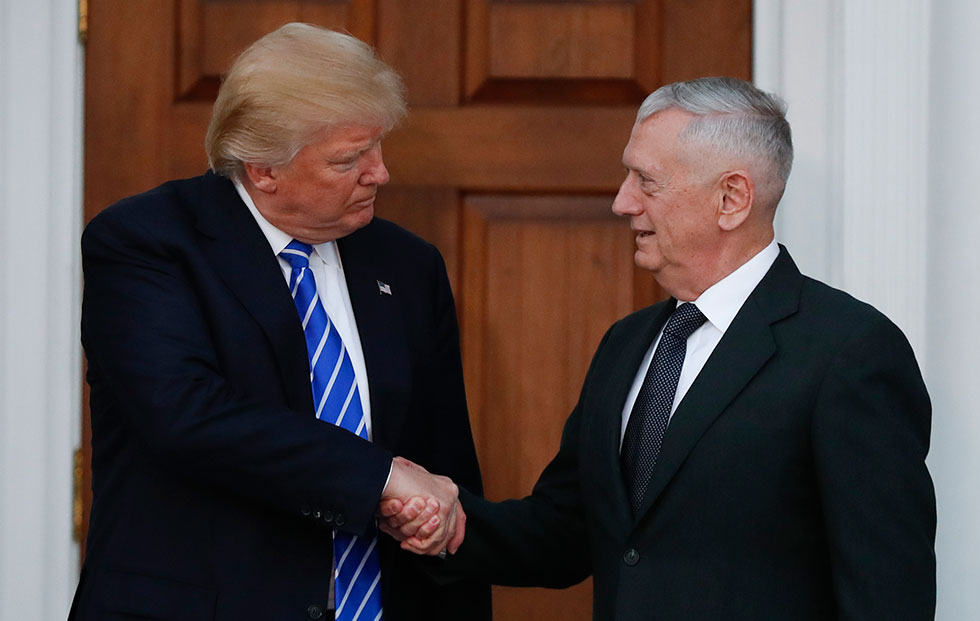
AP Photo/Carolyn Kaster In an op-ed on Defense One, Derek Chollet, former assistant Defense secretary for international security affairs, said Mattis had many admirers within the Obama administration despite the general’s disaffection with Obama’s approach:
With Mattis, the Pentagon will be led by an astute, respected, battle-hardened leader – one who will bring intense focus on the fights the U.S. is already waging (especially a piece of real estate he knows so well, Iraq and Syria), prepare for the fights that it might get in, work hard to strengthen our most important military partnerships around the world, and keep morale high inside a jittery Pentagon.
Mattis will need an exemption from a law requiring the Defense secretary to be out of uniform for at least seven years.
3/16
Central Intelligence Agency: Mike Pompeo
When Trump announced the Republican lawmaker from Kansas was his pick to lead the CIA, he noted that Pompeo, a former Army tank commander, graduated first in his class at West Point and is a graduate of Harvard Law School, where he was editor of the Harvard Law Review: "He will be a brilliant and unrelenting leader for our intelligence community to ensure the safety of Americans and our allies.”
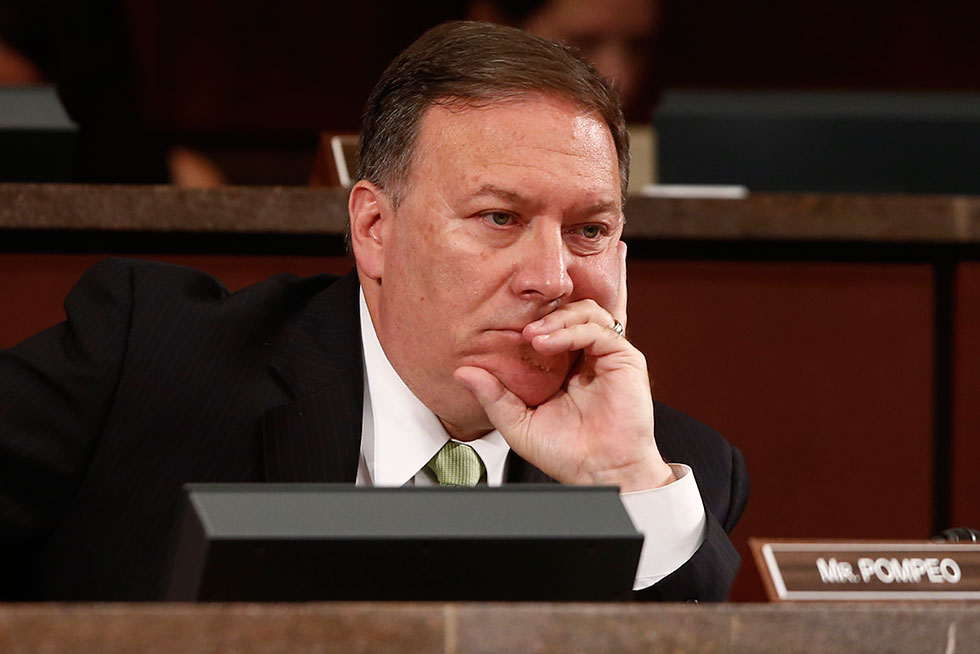
AP file photo Those impressive credentials won't reassure many outside conservative circles, however. The New York Times noted that Pompeo "would become one of the most overtly partisan figures to take over the C.I.A. — a spy agency that, at least publicly, is supposed to operate above politics and avoid a direct role in policy making."
As a member of the House Intelligence Committee, Pompeo fought efforts to curb some of the most controversial counterterrorism programs and has been a relentless critic of Hillary Clinton, whom he accused of orchestrating a massive coverup in the aftermath of the attack on the U.S. consulate in Behghazi, Libya, when she was secretary of State.
4/16
Justice: Jeff Sessions
Trump's announcement that he would nominate Alabama Sen. Jeff Sessions to the position of Attorney General drew sharp criticism from civil rights advocates and proponents of immigration reform, something the conservative Republican has steadfastly rejected.
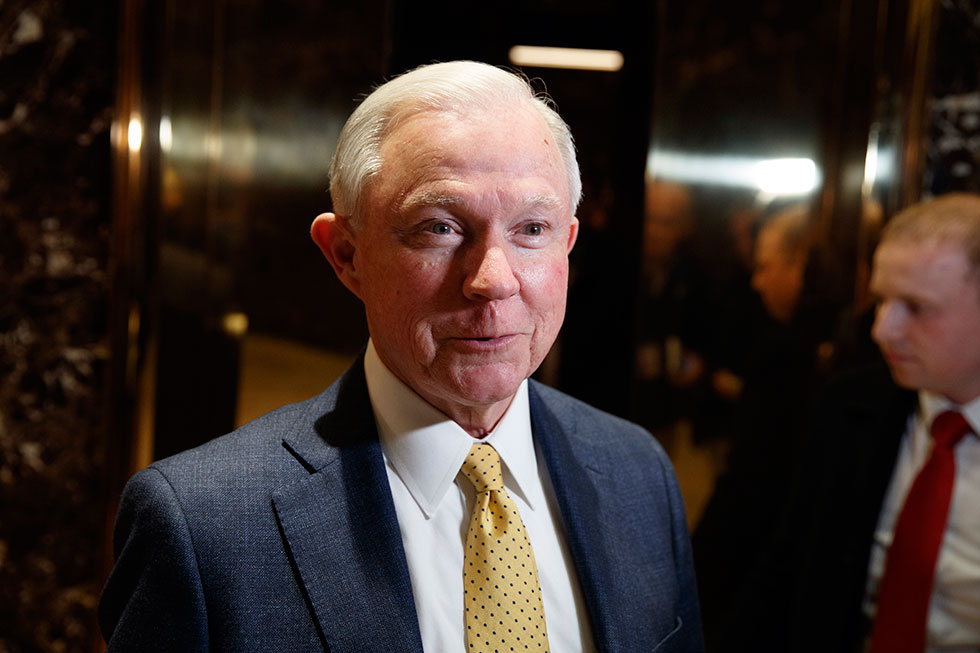
AP Photo/Evan Vucci The New York Times editorial board called it an "insult to Justice," reminding readers that 30 years ago, the Republican-controlled Senate rejected Sessions for a federal judgeship when then-President Ronald Reagan nominated him for the job after former colleagues testified about racially-charged comments Sessions had made as a U.S. Attorney. Not everyone shared that view. George J. Terwilliger III, deputy attorney general under President George H.W. Bush, told the Washington Post, “I can say unequivocally there’s not a racist bone in the guy’s body,” he said.
As noted in a report by Politico, Sessions would have considerable latitude to reshape the Justice Department—and the presidency as well:
The AG has wide discretion to shift American policy in huge ways simply by how he prioritizes its limited resources—which cases the office chooses to prosecute and which ones it lets go. It runs dozens of agencies, including the powerful FBI, DEA, and the immigration courts. And it also, insiders say, exerts huge influence on the White House’s own sense of its power.
5/16
Treasury: Steven Mnuchin
The former hedge fund manager, Goldman Sachs alum and Hollywood film producer Steven Mnuchin would seem an unusual pick for Treasury secretary, given his lack of public policy experience. But when Trump announced his plan to tap Mnuchin for the job, he said, “His expertise and pro-growth ideas make him the ideal candidate to serve as Secretary of the Treasury. He purchased IndyMac Bank for $1.6 billion and ran it very professionally, selling it for $3.4 billion plus a return of capital. That’s the kind of people I want in my administration representing our country."
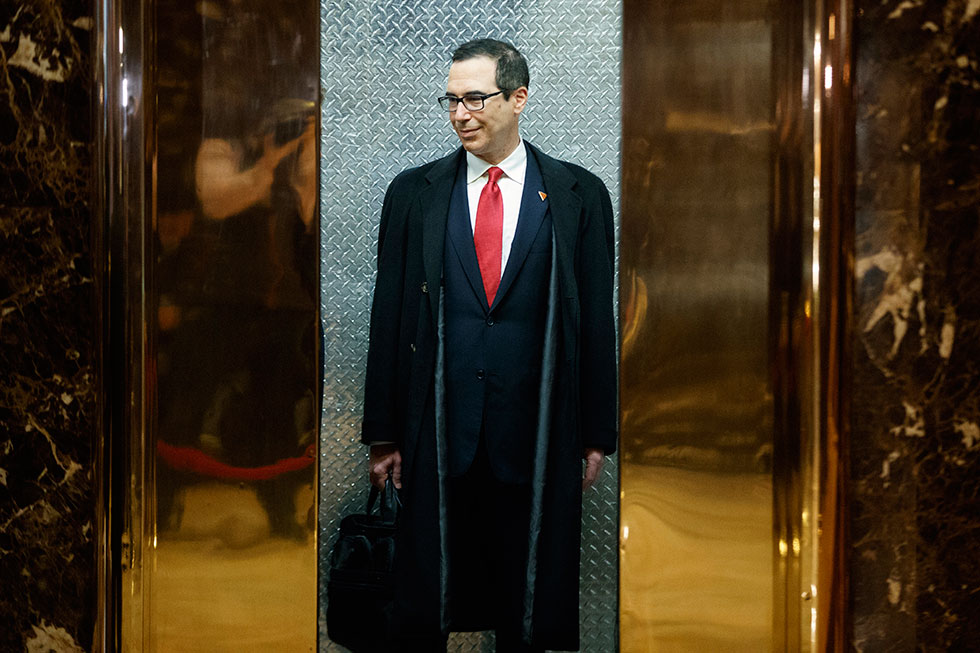
AP Photo/Evan Vucci According to The New York Times:
Mr. Mnuchin is known as a smart, hard-working, talented executive. Henry M. Paulson Jr., the former Treasury secretary who was critical of Mr. Trump during the campaign, was very complimentary of Mr. Mnuchin’s performance at Goldman Sachs.
The man who produced Avatar--the highest grossing film in history--the X-Men franchise and dozens of other highly successful films, spent 17 years at Goldman Sachs, where he oversaw trading in government securities, mortgages, money markets, and municipal bonds and rose to become the company’s Chief Information Officer, according to the Trump transition office.
Since 2004, Mnuchin founded Dune Capital Management, which specializes in public equity markets, real estate and the entertainment industry. He also founded OneWest Bank Group LLC in 2009, the transition office noted.
6/16
Homeland Security: John Kelly
Trump tapped another retired Marine to lead Homeland Security: Gen. John Kelly. Like retired Gen. James Mattis, Trump's pick for Defense, Kelly has a reputation for blunt talk. As commander of U.S. Southern Command, Kelly was an outspoken critic of the Obama administration's efforts to control the flow of people and drugs across the border with Mexico, telling Defense One that Latin America’s broken societies and American's insatiable appetite for drugs posed "existential" threats to national security.
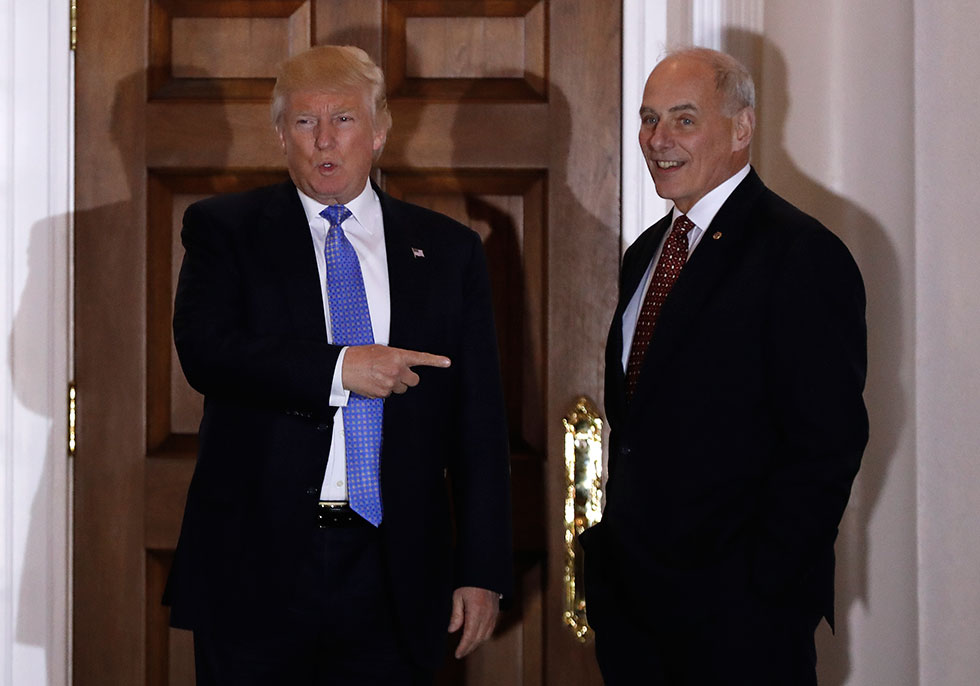
AP Photo/Carolyn Kaster “Gen. John Kelly’s decades of military service and deep commitment to fighting the threat of terrorism inside our borders makes him the ideal choice to serve as our Secretary of the Department of Homeland Security,” Trump said in a statement. “He is the right person to spearhead the urgent mission of stopping illegal immigration and securing our borders, streamlining TSA and improving coordination between our intelligence and law enforcement agencies.”
7/16
Commerce: Wilbur Ross
Private equity billionaire Wilbur Ross made a career out of turning around failing companies. Donald Trump hopes he'll draw on some of that expertise to turn around faltering American businesses. Like his would-be boss, the 79-year-old Ross, according to Forbes, "has long railed against “bad trade deals” and the decline of manufacturing jobs in America."
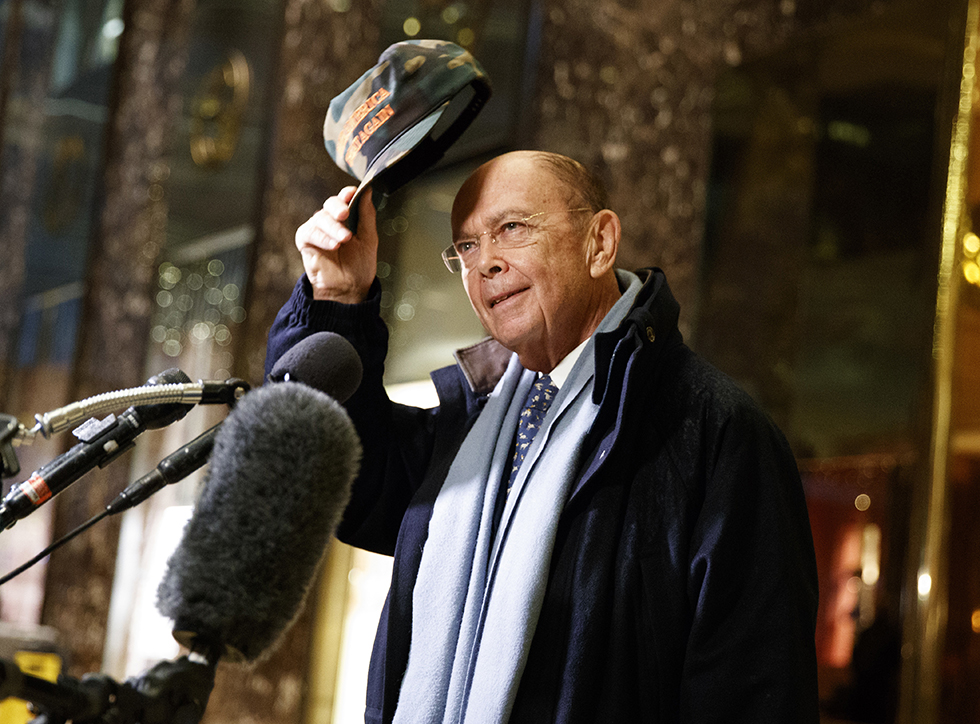
(AP Photo/Evan Vucci) Unlike some other cabinet picks, Ross has a longstanding relationship with Trump, Forbes noted:
After getting an MBA from Harvard, he spent two decades heading Rothschild Inc’s bankruptcy advisory business, where he represented investors in Trump’s failing Taj Mahal casino in the early 1990s. Ross and Carl Icahn convinced bondholders to strike a deal with Trump, who some investors wanted to push out, which allowed Trump to retain control of the property.
8/16
Transportation: Elaine Chao
Of all Trump's cabinet picks, Elaine Chao knows better than most what she's getting into. A veteran of both Bush administrations, she served as deputy secretary of Transportation under George H.W. Bush and secretary of Labor under George W. Bush.
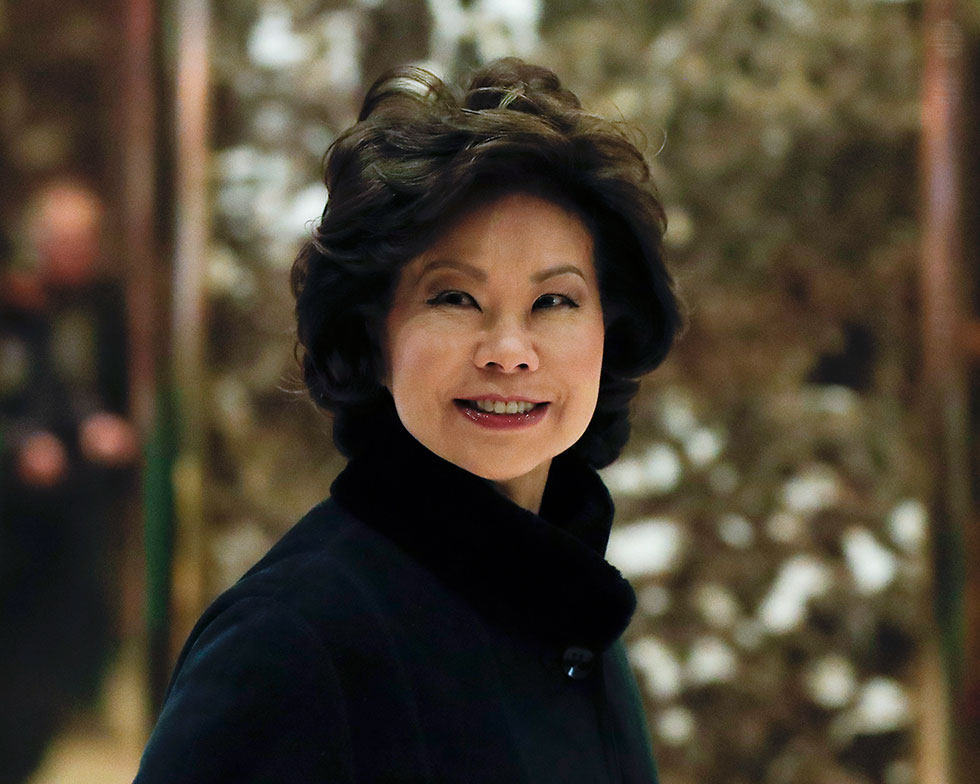
AP Photo/Carolyn Kaster Chao's experience at Transportation prior to becoming deputy secretary included serving as deputy administrator of the Maritime Administration and chairwoman of the Federal Maritime Commission. She also served as director of the Peace Corps from 1991 to 1992, during a period of expansion into Eastern Europe and newly independent states following the collapse of the former Soviet Union.
In a statement issued by the Trump transition office, Chao said, "The President-elect has outlined a clear vision to transform our country's infrastructure, accelerate economic growth and productivity, and create good paying jobs across the country." An immigrant from Taiwan at the age of 8, Chao notes in her bio that the experience "motivated her to dedicate most of her professional life to ensuring that all people have the opportunity to build better lives."
The Hudson Institute distinguished fellow is married to Senate Majority Leader Mitch McConnell.
9/16
Health and Human Services: Tom Price
Rep. Tom Price, an orthopedic surgeon, would bring a unique combination of experience and skills to the job of leading the Health and Human Services Department, especially for a president determined to make good on a promise to repeal and replace President Obama's signature domestic accomplishment, the Affordable Care Act.
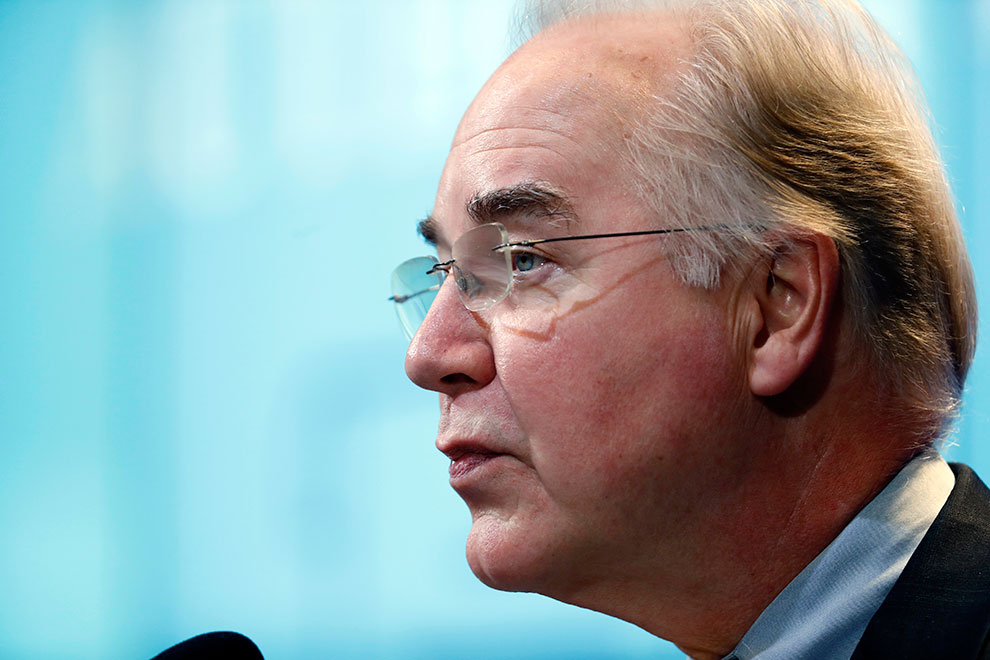
AP Photo/Alex Brandon As chairman of the House Budget Committee, the Georgia Republican has drafted a plan to replace Obamacare with one that would reduce the government's role along with some patient protections, and give doctor's more leeway in treating patients. The New York Times reported that Price's Empowering Patients First plan "would take health care in a fundamentally different direction, away from mandated coverage and care and toward a free-market approach, with fewer consumer protections and more freedoms for doctors."
According to a report in MarketWatch:
Based on his background as a surgeon and his regulatory record, there’s speculation that Price would support physician-friendly policies.This could potentially stymie the current administration’s push of value-based health care, which aims to reimburse various health-care-system players — including doctors — based on how effectively they or their products work, rather than how much of their products or services are used.
10/16
Labor: Andy Puzder
Andy Puzder, the chief executive of CKE Restaurant Holdings, which owns the Carl's Jr. and Hardee's chains, generated a lot of press when he lauded the virtues of automation during an interview with Business Insider in March (headline: "Fast-food CEO says he's investing in machines because the government is making it difficult to afford employees"). Now that Donald Trump has tapped him to lead the Labor Department, observers wonder what's in store from the robot-admiring outspoken opponent of minimum wage increases.
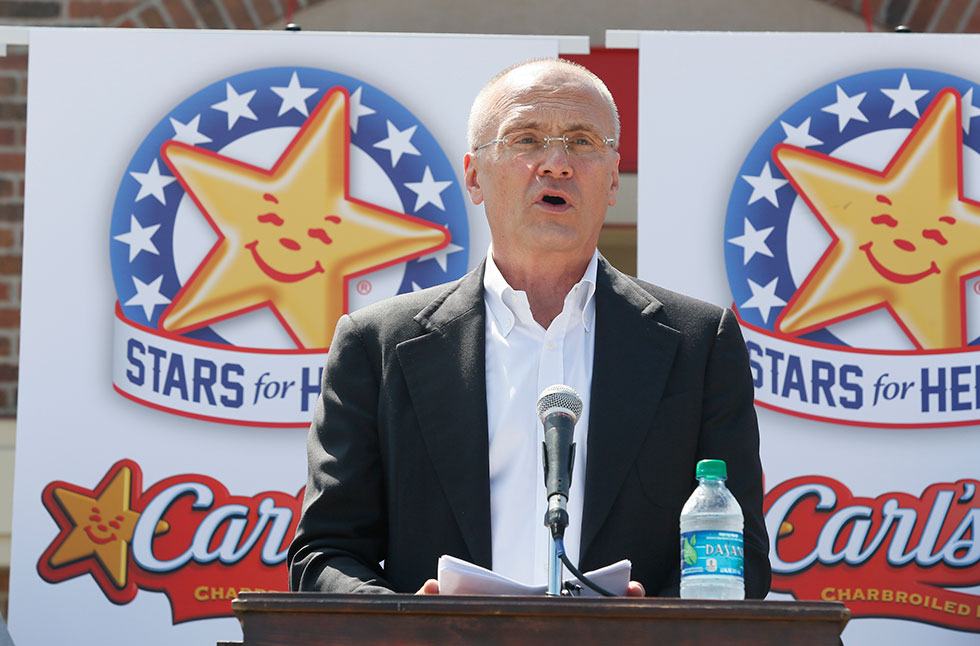
Jack Plunkett/AP Images for Carl's Jr. Following the uproar over his remarks to Business Insider, the Los Angeles Times did an extended interview with Puzder to explore the issue of automation on the workforce, the minimum wage and other issues affecting the low-income workers: "Puzder's views are unapologetically conservative. But they also reflect the worldview of a veteran business executive whose workforce is heavily tilted toward the low-income end of the employment scale."
Puzder believes that government mandates impose costs that "make automation a more viable option for business," the LA Times reported, and he's not opposed to minimum wage increases, but believes they must be balanced against other factors: "Are people going to want to hire entry-level employees for these very high minimums, which come with Obamacare, which come with mandatory sick leave, or other benefits which the government imposes on business for these individuals? Are you going to be able to keep minimum wage entry-level job positions open for individuals?"
AFL-CIO President Richard Trumka said, "Mr. Puzder’s long track record inspires deep skepticism."
11/16
Housing and Urban Development: Ben Carson
Trump's decision to tap famed neurosurgeon and former rival Dr. Ben Carson to lead Housing and Urban Development left many observers scratching their heads. Carson had earlier indicated he didn't feel qualified to lead the Health and Human Services Department, which seemed more clearly aligned with his professional experience.
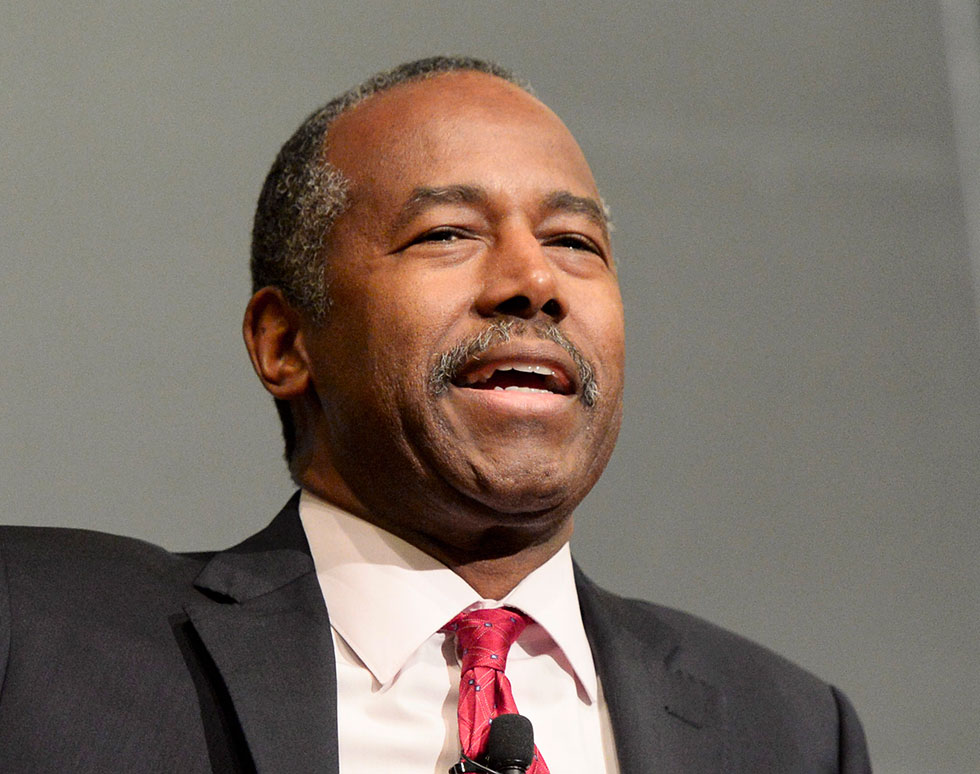
AP Photo/Stephen Dunn Trump apparently didn't see it that way: "Ben Carson has a brilliant mind and is passionate about strengthening communities and families within those communities. We have talked at length about my urban renewal agenda and our message of economic revival, very much including our inner cities.”
Carson, who grew up poor in Detroit, raised by his mother who worked multiple jobs to support her children, earned his undergraduate degree from Yale before attending medical school at University of Michigan. He hasn't elaborated on what Trump's urban renew agenda entails. As noted in a story in CityLab, Carson wrote a 2015 editorial for the Washington Times in which he “describes the Affirmatively Furthering Fair Housing rule as ‘social engineering’ and compares it to the school-busing efforts associated with integration.”
Steven Preston, who served as George W. Bush's HUD secretary, told MSNBC, "He's going to bring compassion and passion for the city . . . He's going to bring a searing intelligence and he's not going to be beholden to existing processes. He's going to be open to new ideas."
12/16
Education: Betsy DeVos
The billionaire charter school advocate and former Michigan Republican Party chairwoman Betsy DeVos is a long-time education activist. “Under her leadership we will reform the U.S. education system and break the bureaucracy that is holding our children back so that we can deliver world-class education and school choice to all families," President-elect Trump said in announcing his intention to nominate her for Education secretary.
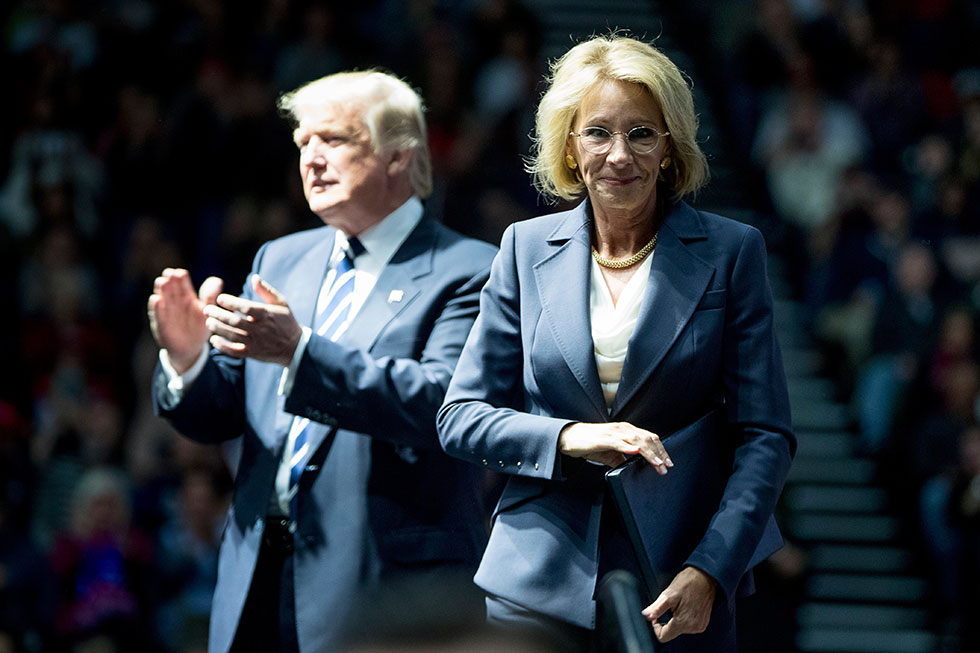
AP Photo/Andrew Harnik The Washington Post reported: "Many pro-school-choice groups have praised the choice, saying DeVos will work hard to grow new programs that give parents more school choice. But public education advocates say that they fear she will help propel America’s public education system toward destruction."
DeVos' work in Michigan has come under fire, Politico noted: "Despite two decades of charter-school growth, the state’s overall academic progress has failed to keep pace with other states: Michigan ranks near the bottom for fourth- and eighth-grade math and fourth-grade reading on a nationally representative test, nicknamed the “Nation’s Report Card.” Notably, the state’s charter schools scored worse on that test than their traditional public-school counterparts, according to an analysis of federal data.
13/16
Environmental Protection Agency: Scott Pruitt
Three days before President-elect Donald Trump announced he was tapping Scott Pruitt to lead the Environmental Protection Agency, the Oklahoma attorney general tweeted:
Pres. Obama has been eager to say if Congress is not acting, he will. This is far-reaching and unconstitutional. https://t.co/EQ8f6EHXBZ
— Scott Pruitt (@ScottPruittOK) December 5, 2016Rolling back what Pruitt considers EPA "overreach" will certainly be a priority.
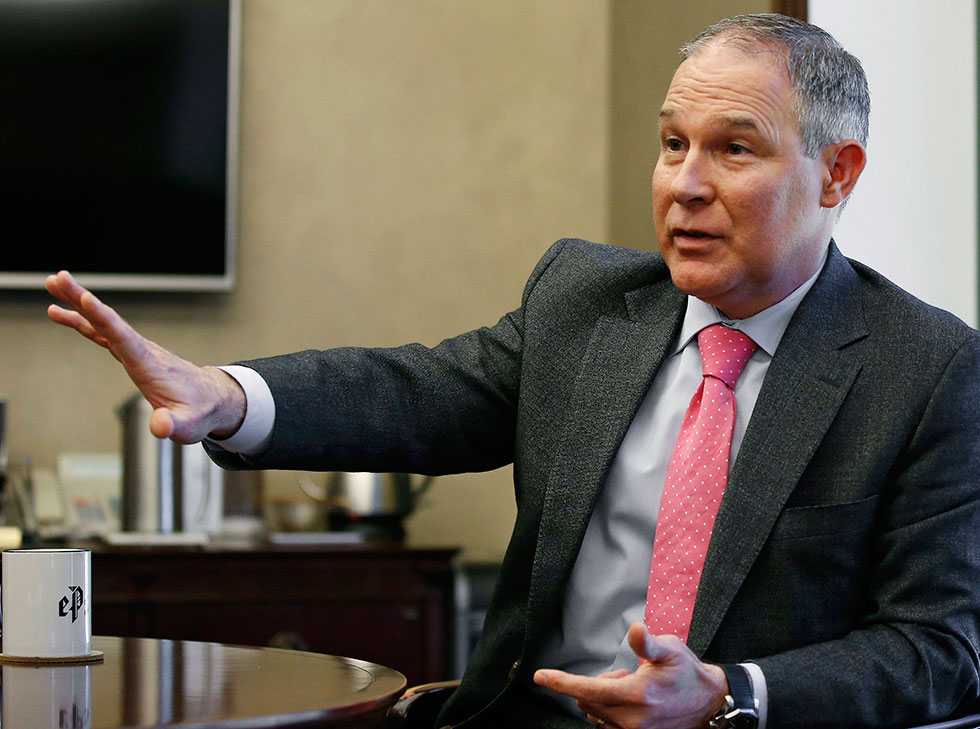
AP Photo/Sue Ogrocki In an editorial, the Wall Street Journal dubbed him "a lawyer for a lawless EPA," positing that "Mr. Pruitt’s first job will be restoring respect for the Constitution and cooperative federalism in EPA rule-making. He knows how to do this because he led the legal charge by the states against EPA abuses, including the victory of a Supreme Court stay on the Clean Power Plan as it moves through the appellate courts."
Environmental groups and even some Republicans see it differently. According to the Sierra Club: "The selection suggests a remarkable and dangerous shift in the agency's direction given Pruitt’s past collaborations with oil and gas companies and the lawsuits he has filed against major health and environmental policies in the past eight years, including lawsuits against the EPA itself."
14/16
Energy: Rick Perry
Trump's selection of former rival Rick Perry to lead the Energy Department signaled a potential shakeup at the department. Perry, during his first campaign for president, said he would eliminate the department altogether given the chance.
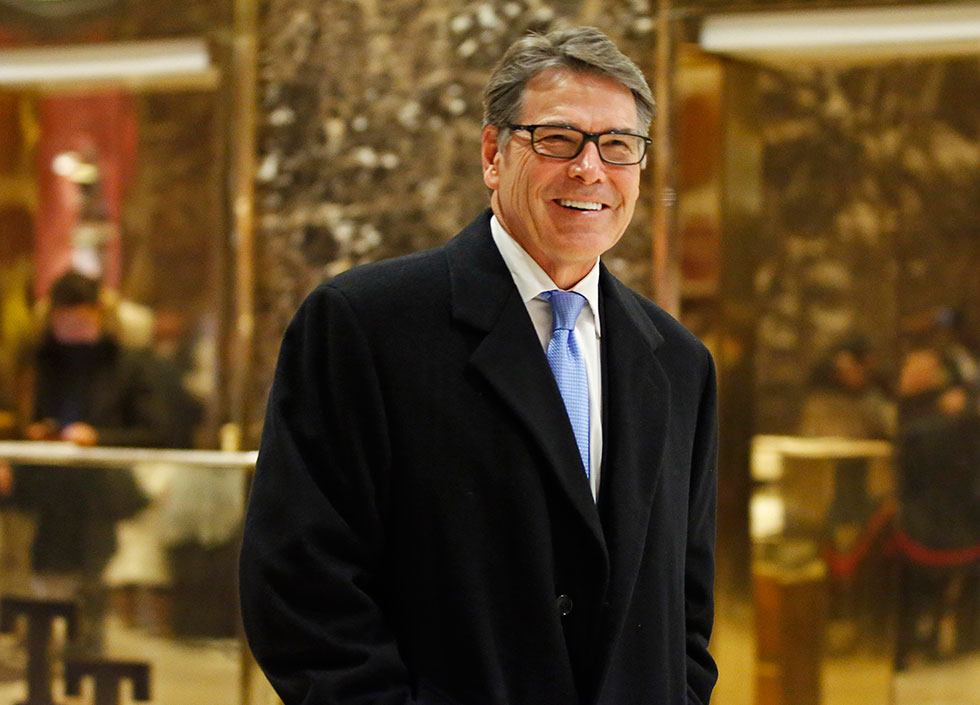
AP Photo/Kathy Willens “As the Governor of Texas, Rick Perry created created a business climate that produced millions of new jobs and lower energy prices in his state, and he will bring that same approach to our entire country as Secretary of Energy,” Trump said in a statement when announcing Perry's selection. “My administration is going to make sure we take advantage of our huge natural resource deposits to make America energy independent and create vast new wealth for our nation, and Rick Perry is going to do an amazing job as the leader of that process.”
For his part, Perry said, "As the former governor of the nation's largest energy producing state, I know American energy is critical to our economy and our security. I look forward to engaging in a conversation about the development, stewardship and regulation of our energy resources, safeguarding our nuclear arsenal, and promoting an American energy policy that creates jobs and puts America first."
No word about eliminating the department—but then that could put him out of a job, assuming the Senate confirms the nomination.
15/16
Interior: Ryan Zinke
Rep. Ryan Zinke, R-Mont., was an early supporter of Donald Trump during the presidential campaign and openly sought a cabinet position. The former Navy SEAL campaigned on a platform of achieving energy independence and is a member of the House Natural Resources Committee, according to the Washington Post.
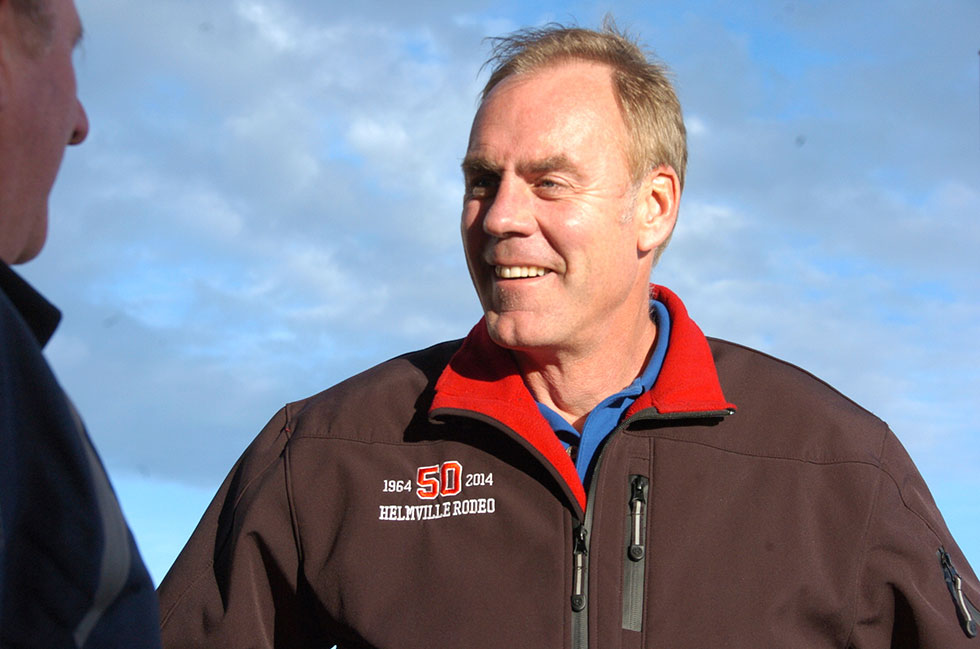
AP Photo/Matthew Brown "A lifelong hunter and fisherman, the 55-year-old Zinke has defended public access to federal lands even though he frequently votes against environmentalists on issues ranging from coal extraction to oil and gas drilling. This summer, he quit his post as a member of the GOP platform-writing committee after the group included language that would have transferred federal land ownership to the states," the Post reported.
U.S. News and World Report said, "News of his selection was welcomed by Montana's Confederated Salish and Kootenai Tribes and at least one conservation group, Backcountry Hunters and Anglers. The president of the Missoula, Montana-based hunting group, Land Tawney, called Zinke a 'potential ally' in the effort to balance energy development with preservation."
- Start Over
16/16
Small Business Administration: Linda McMahon
Linda McMahon, the billionaire co-founder and former chief executive of World Wrestling Entertainment, is "one of the country’s top female executives advising businesses around the globe," Trump said when announcing his pick to lead the Small Business Administration.
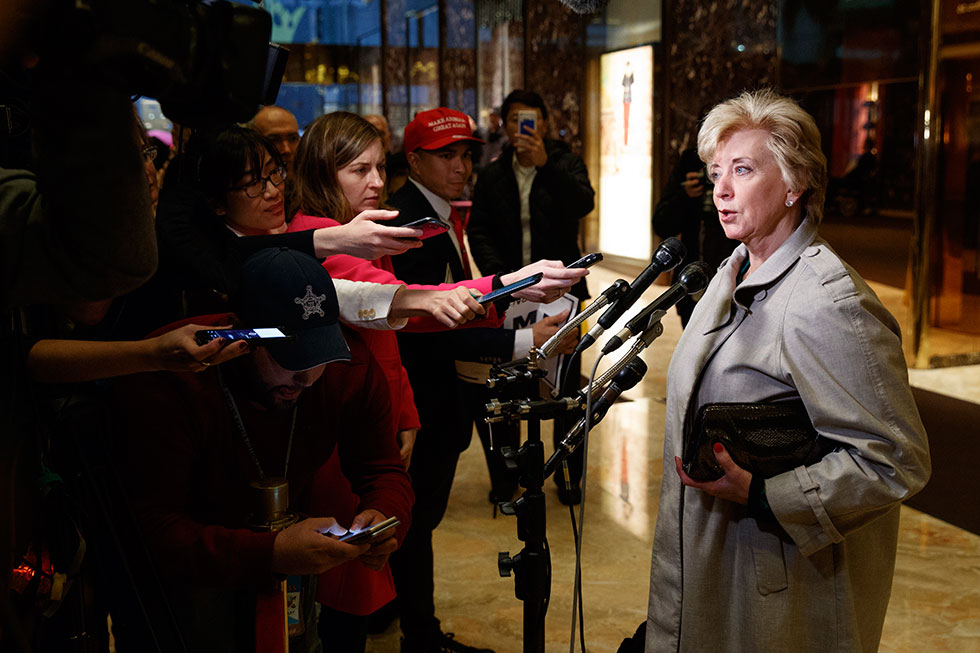
AP Photo/Evan Vucci McMahon and her husband launched the professional wrestling conglomerate, turning a small start-up into an international organization with more than 800 employees, Trump said. The relationship between Trump and the McMahons goes back decades, and the couple are the Trump Foundation's largest donors besides Trump.
The Washington Post noted that McMahon is also co-founder and chief executive of Women’s Leadership LIVE, which supports women in business. She publicly criticized Trump for his demeaning comments about women during the campaign, the Post reported:
“Those [comments] were just over the top; they were deplorable, objectionable absolutely,” McMahon said on Yahoo News. “He’s not helping, certainly, to put women in the best light. Maybe he regrets them, maybe he doesn’t. I realize he punches hard when he punches back, but that’s just over the top. I wish that no candidate would make those comments.”
Meet the Trump Cabinet
StartFew presidential transitions have been as fraught with uncertainty as the one associated with the incoming Trump Administration. While candidate Donald Trump pledged to repeal the Affordable Care Act, deport millions of undocumented immigrants, build a wall across the Southwest border with Mexico, renegotiate trade deals and redefine international partnerships, it’s not at all clear what President Trump may actually do once he’s in office. To understand how the man who promised to “fire stupid people” and shake up Washington might actually govern, its useful to consider the men and women he has tapped for his Cabinet. While the Senate still must confirm Trump’s picks, they offer insight into how he may manage the federal bureaucracy.
Contents
- State: Rex Tillerson
- Defense: James Mattis
- Central Intelligence Agency: Mike Pompeo
- Justice: Jeff Sessions
- Treasury: Steven Mnuchin
- Homeland Security: John Kelly
- Commerce: Wilbur Ross
- Transportation: Elaine Chao
- Health and Human Services: Tom Price
- Labor: Andy Puzder
- Housing and Urban Development: Ben Carson
- Education: Betsy DeVos
- Environmental Protection Agency: Scott Pruitt
- Energy: Rick Perry
- Interior: Ryan Zinke
- Small Business Administration: Linda McMahon
- Start Over


.jpg)